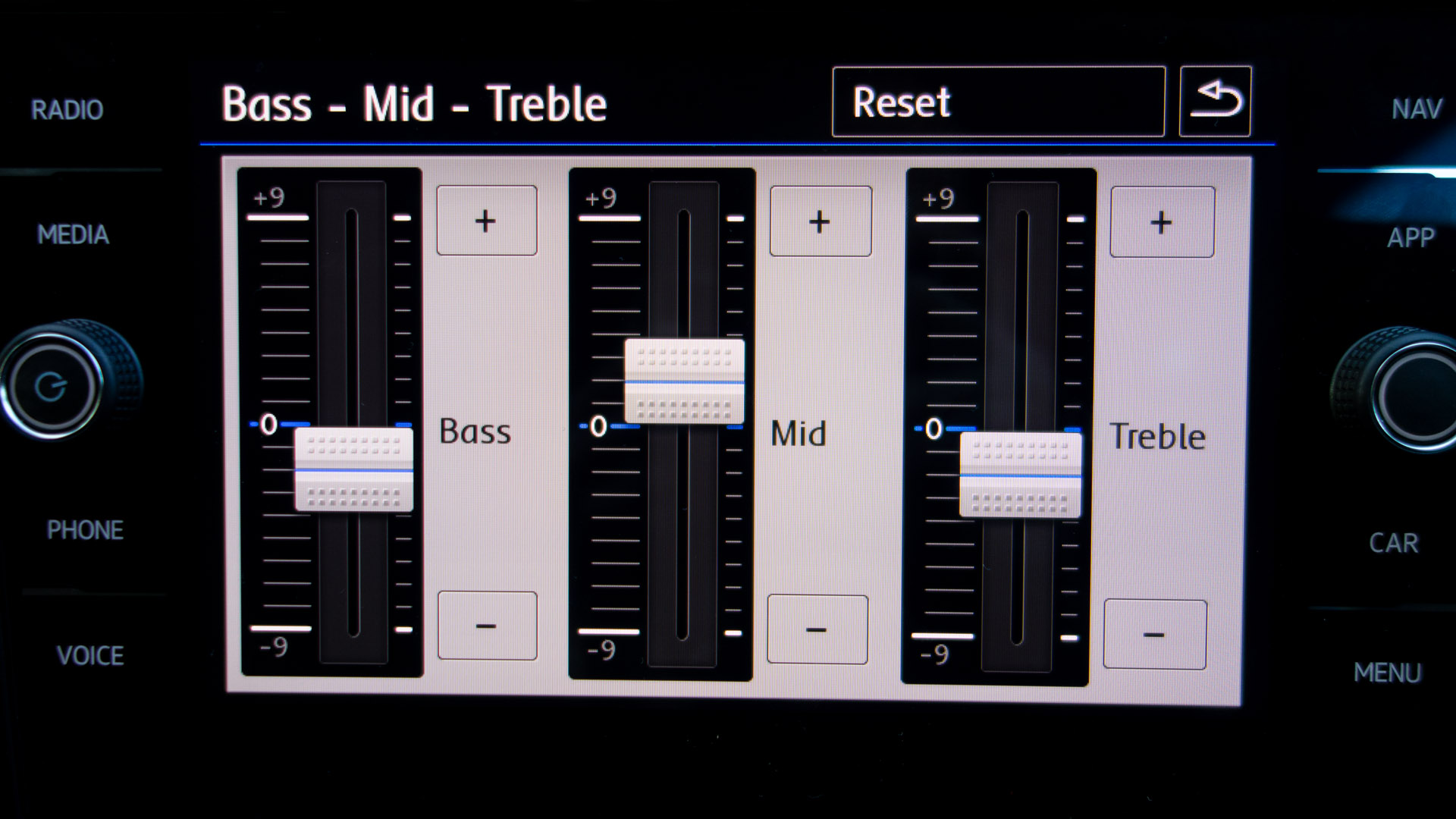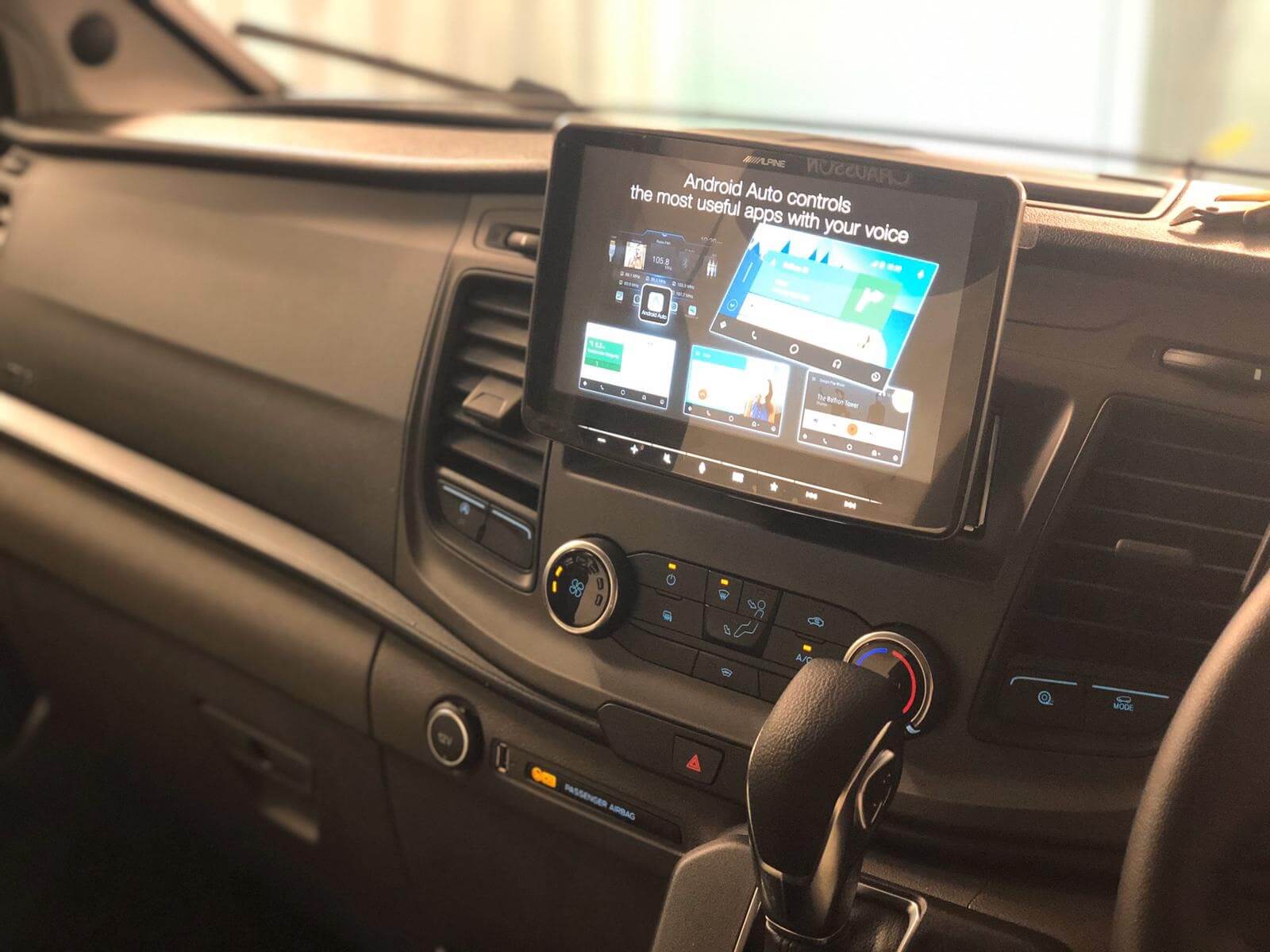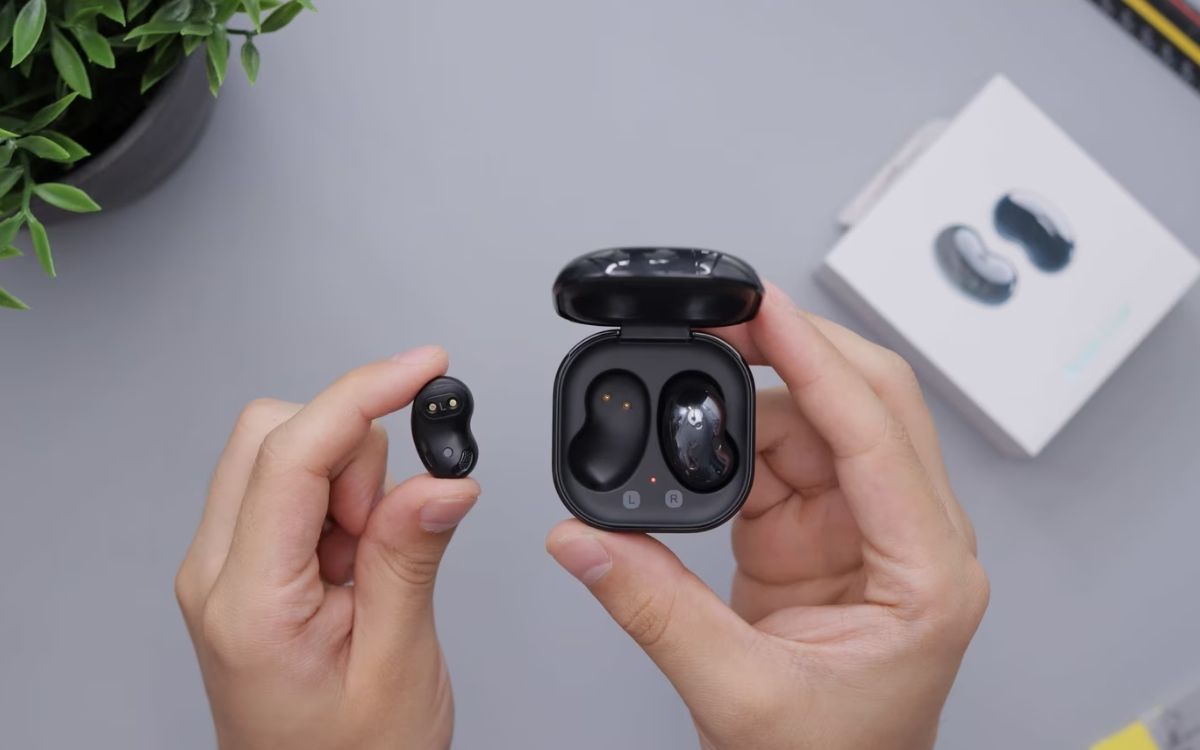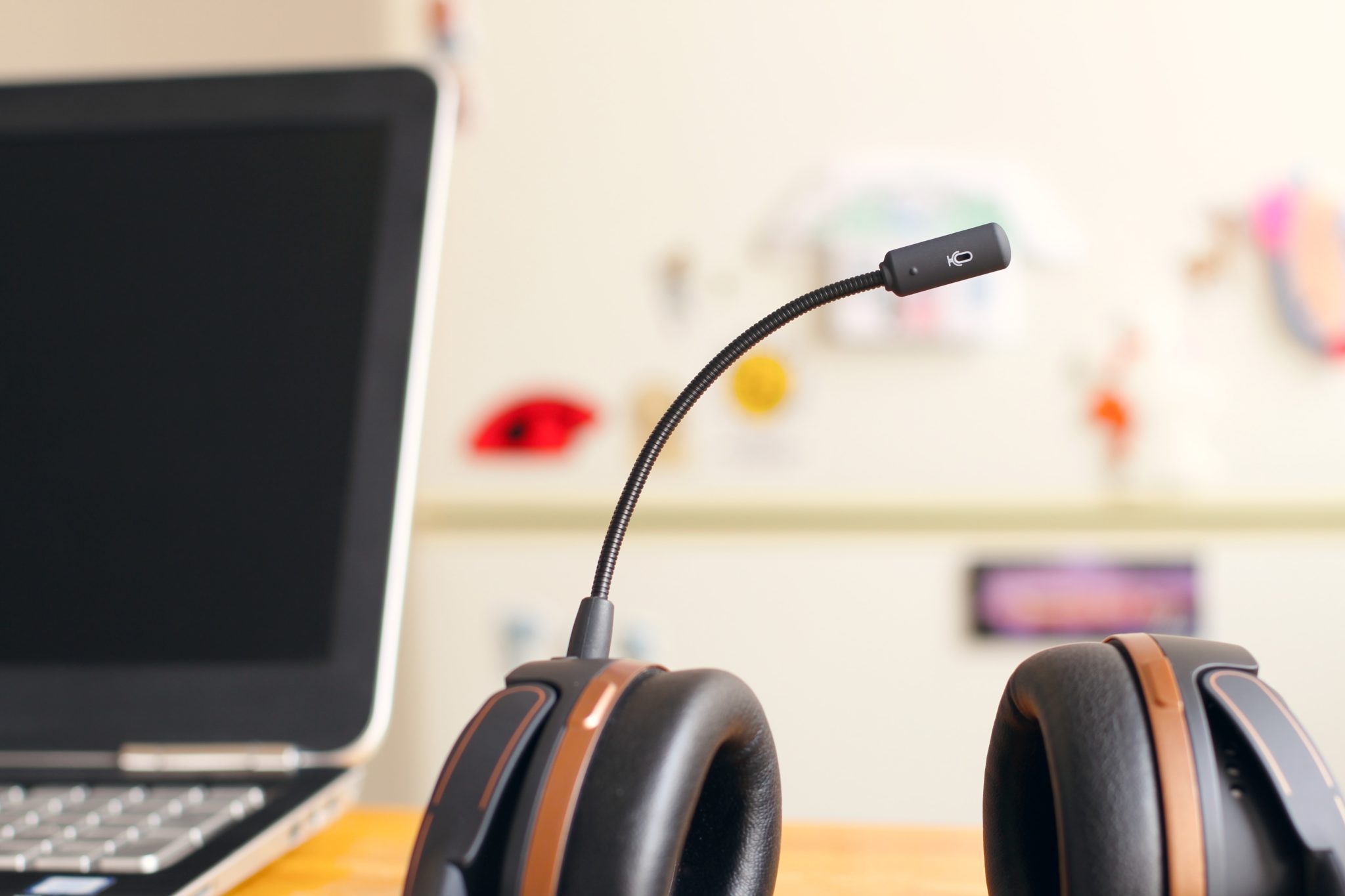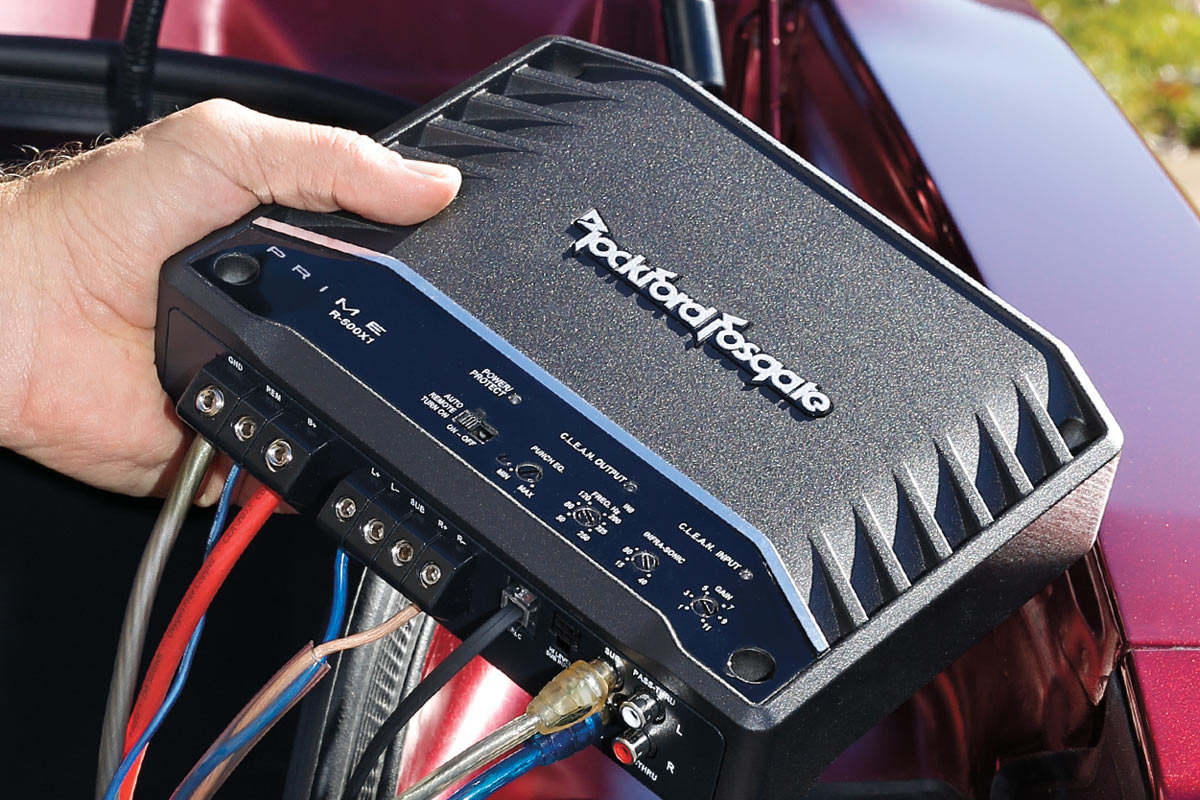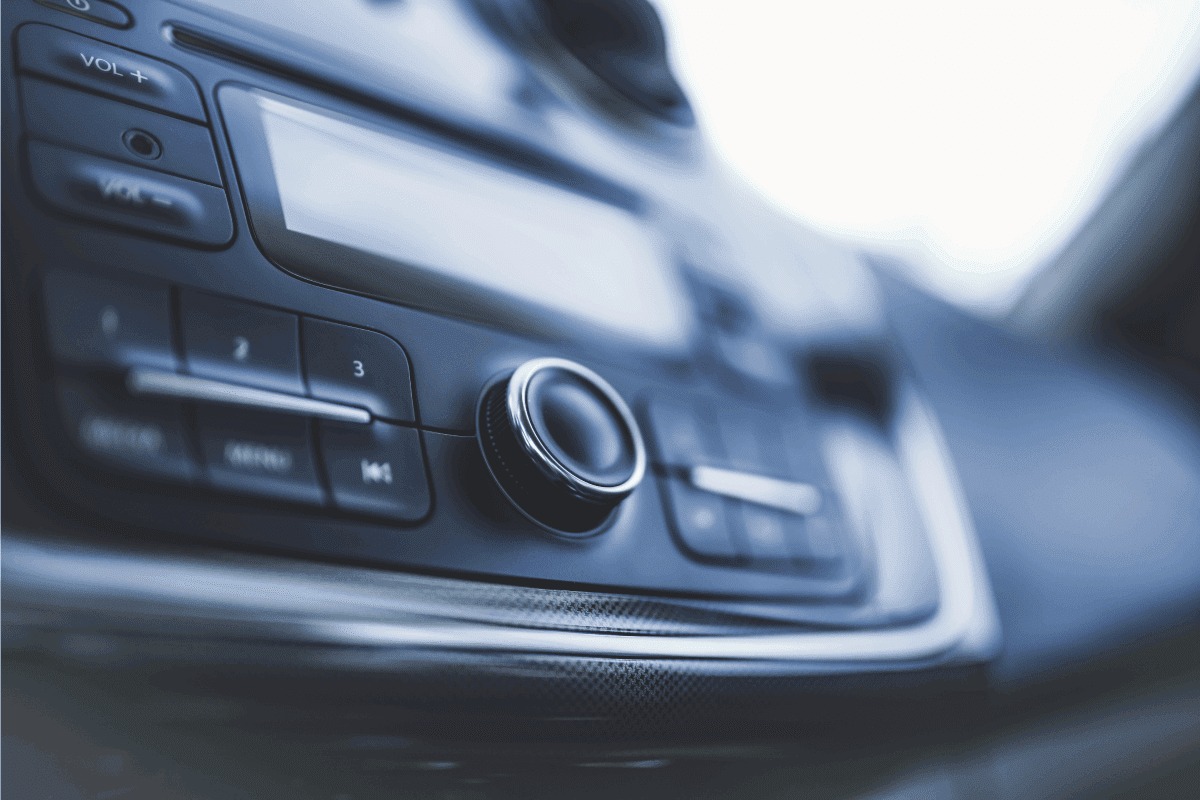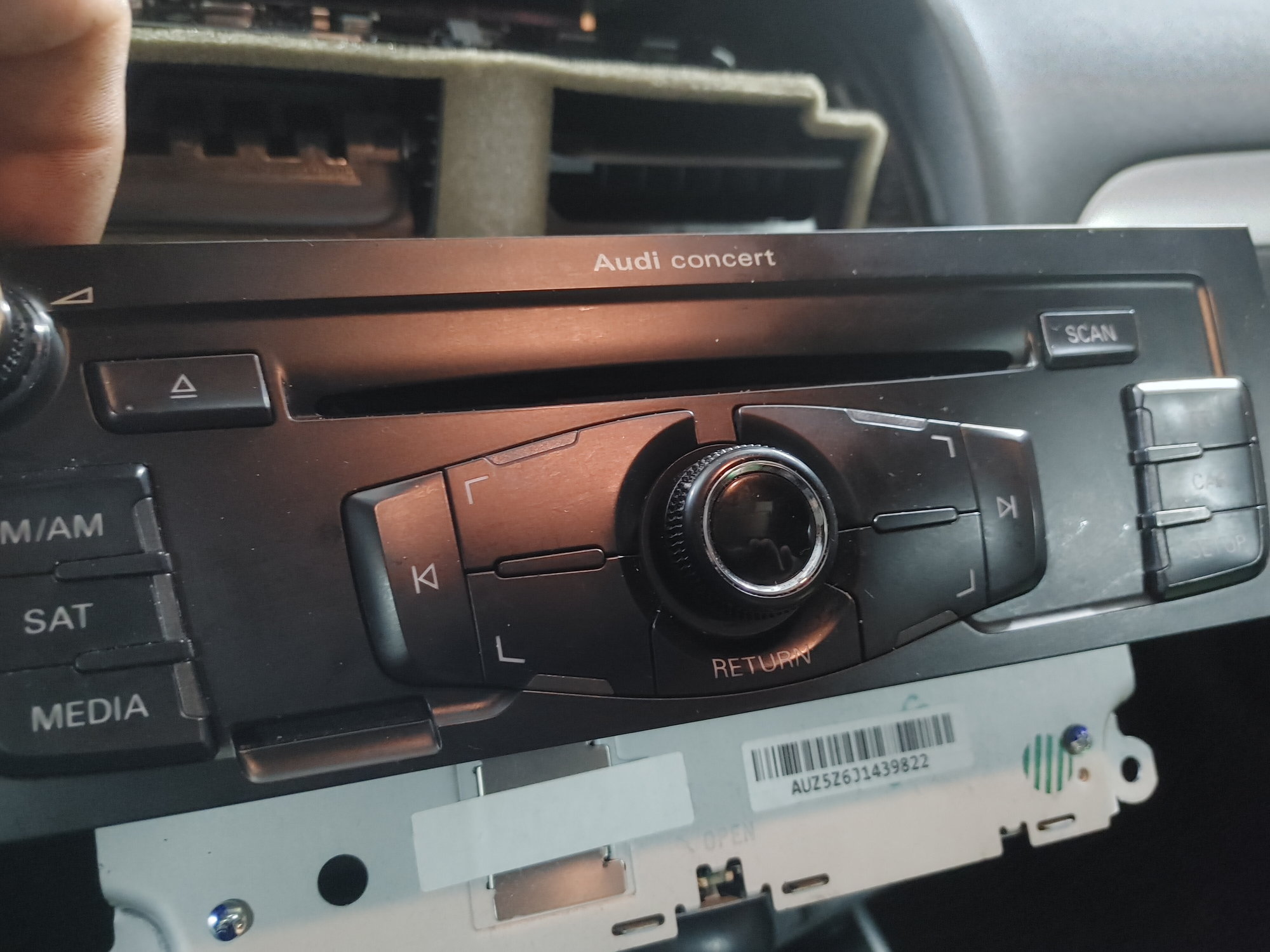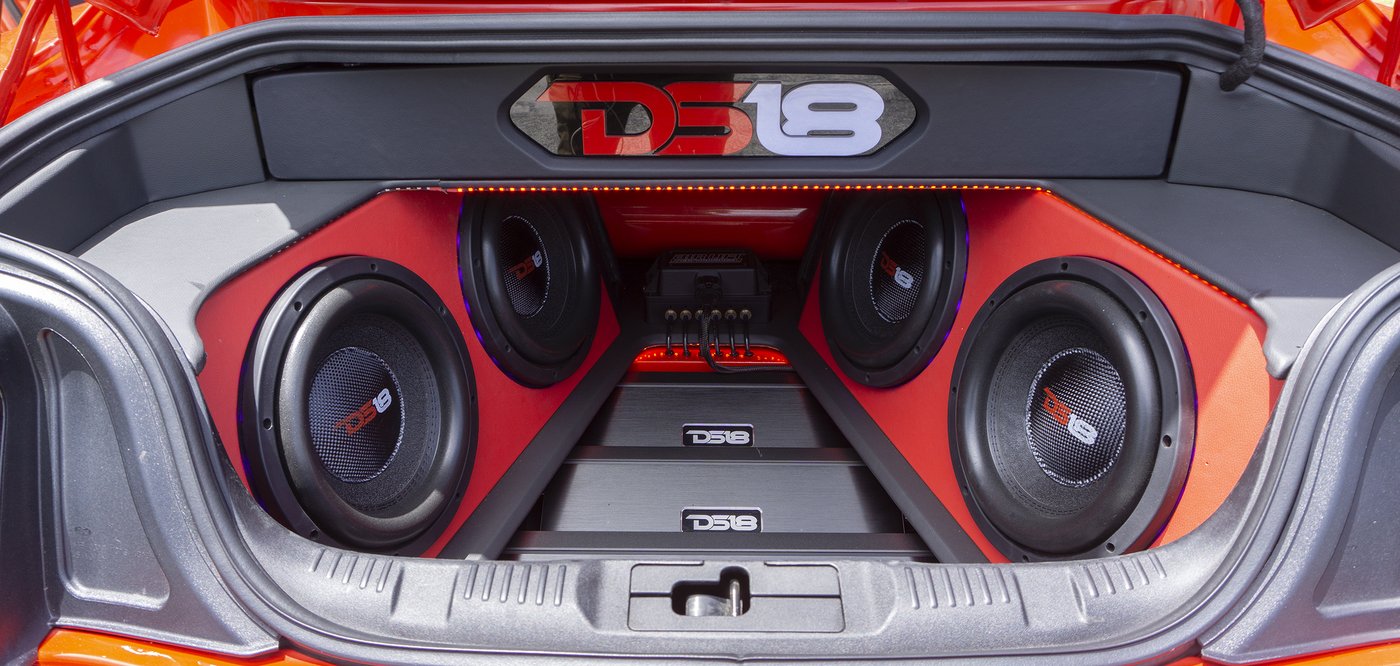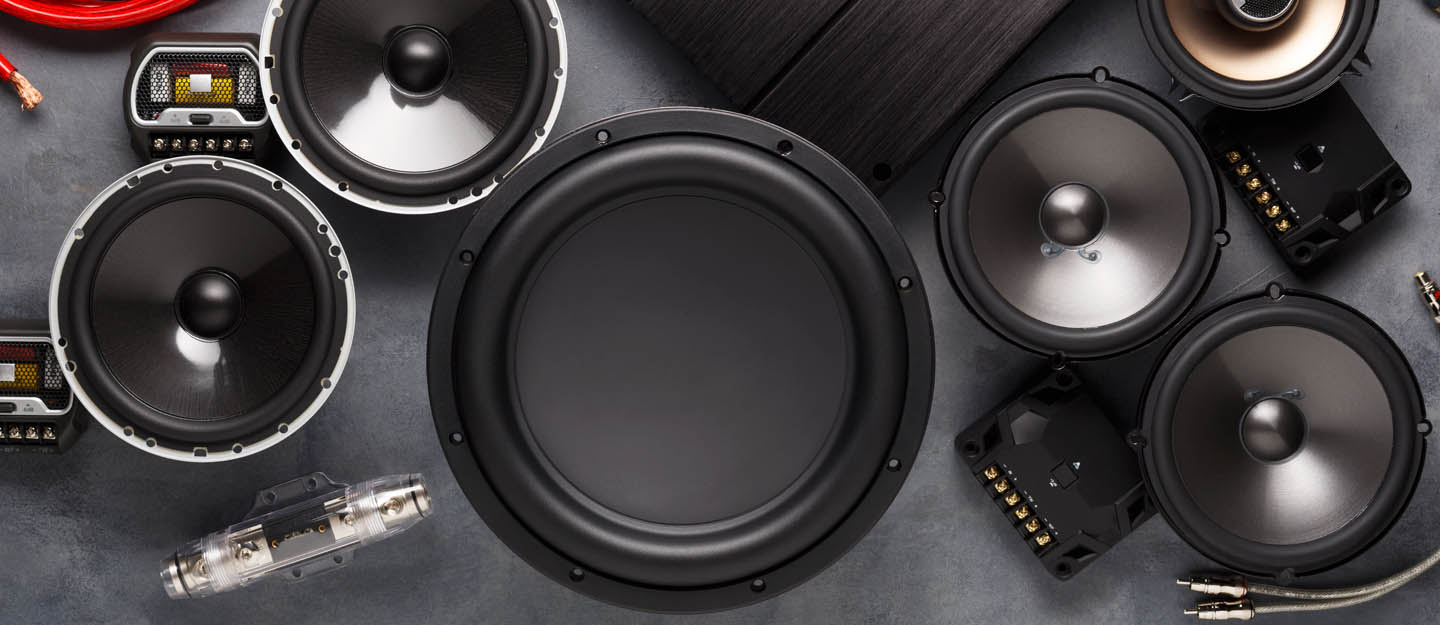Home>Devices & Equipment>Car Audio>How Do Noise Filters Car Audio Work
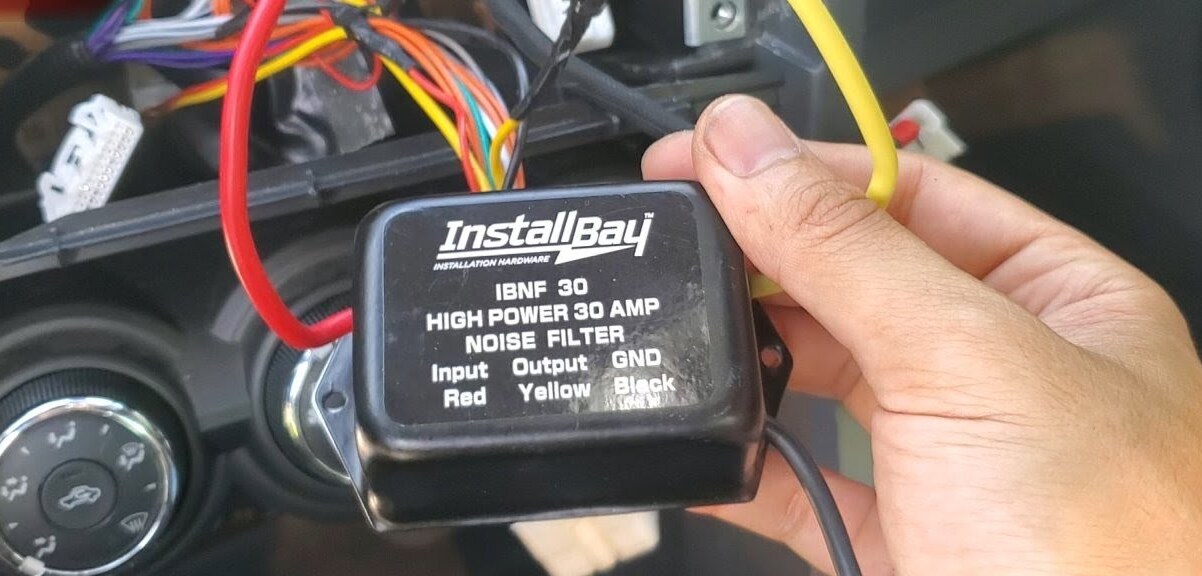

Car Audio
How Do Noise Filters Car Audio Work
Published: February 6, 2024
Discover how noise filters in car audio systems work to enhance your sound quality and eliminate unwanted interference. Gain insights into the benefits of using noise filters for a crystal-clear audio experience.
(Many of the links in this article redirect to a specific reviewed product. Your purchase of these products through affiliate links helps to generate commission for AudioLover.com, at no extra cost. Learn more)
Table of Contents
- Introduction
- Understanding Noise Filters
- Types of Noise Filters for Car Audio
- Passive Noise Filters
- Active Noise Filters
- Digital Noise Filters
- How Noise Filters Work in Car Audio Systems
- Common Features of Noise Filters
- Benefits of Using Noise Filters in Car Audio
- Factors to Consider When Choosing a Noise Filter
- Conclusion
Introduction
Car audio systems have become essential for providing entertainment and enhancing the driving experience. However, one common issue that many car audio enthusiasts face is the presence of unwanted noise in their audio playback. Whether it’s engine noise, electrical interference, or a buzzing sound, these disturbances can significantly diminish the overall quality of the audio.
This is where noise filters come into play. Noise filters are electronic devices designed to reduce or eliminate unwanted noise in car audio systems. By filtering out undesirable frequencies and minimizing interference, noise filters can help achieve clearer and more enjoyable audio playback.
In this article, we will delve into the world of noise filters for car audio and explore how they work. We will discuss the different types of noise filters available, their features, and the benefits they bring to audio enthusiasts. Whether you’re a casual listener or an avid car audio aficionado, understanding noise filters is crucial for improving the audio quality in your vehicle.
So, let’s dive in and explore the fascinating world of noise filters for car audio systems.
Understanding Noise Filters
Noise filters are electronic devices designed to mitigate unwanted noise in car audio systems. Understanding how they work and the different types available can help you make informed decisions when it comes to improving your audio quality.
At its core, a noise filter works by analyzing the incoming audio signal and filtering out frequencies that fall within the range of unwanted noise. This is achieved through various filtering techniques, such as passive filtering, active filtering, and digital filtering, which we will explore in more detail later in this article.
Noise filters are particularly effective at reducing electrical interference and eliminating engine noise. Electrical interference can occur when the audio cables in your car pick up electromagnetic signals from other electrical components, causing a buzzing or humming sound. Engine noise, on the other hand, can be caused by vibrations from the engine or the vehicle’s electrical system.
By implementing noise filters in your car audio system, you can significantly improve the sound quality and enjoy a more immersive listening experience. These filters are especially beneficial for music enthusiasts, audiophiles, and those who spend a significant amount of time in their vehicles.
It’s important to note that noise filters are not a universal solution for all audio problems. If you’re experiencing issues like distortion, static, or poor sound quality, it’s essential to diagnose the root cause of the problem. In some cases, adjusting the audio settings or upgrading the audio components may be necessary.
Now that we have a basic understanding of noise filters, let’s explore the different types available and how they work to improve your car audio experience.
Types of Noise Filters for Car Audio
There are different types of noise filters available in the market, each designed to address specific types of noise and deliver optimal audio performance. Let’s take a closer look at the three main types of noise filters commonly used in car audio systems:
- Passive Noise Filters: Passive noise filters are the most basic type of filters and are typically installed in-line between the audio source and the amplifier. They work by using passive components such as resistors, capacitors, and inductors to filter out unwanted noise frequencies. One of the most common passive noise filters is the ground loop isolator, which is effective at eliminating humming or buzzing sounds caused by ground loops.
- Active Noise Filters: Active noise filters are more advanced and include built-in amplification capabilities. They actively analyze the audio signal and apply corrective measures to remove unwanted noise. Active filters are particularly effective at reducing electrical interference and are often used in high-end car audio setups. They require a power source to operate and are typically installed close to the audio source or amplifier.
- Digital Noise Filters: Digital noise filters are the latest innovation in noise filtering technology. They utilize digital signal processing techniques to analyze and modify the audio signal in real-time. These filters offer greater flexibility and precision in reducing noise across a wide range of frequencies. Digital noise filters are often integrated into advanced car audio systems that feature digital processing capabilities.
Each type of noise filter has its advantages and disadvantages, and the choice depends on the specific audio setup and the type of noise you are trying to eliminate. It’s also worth noting that some car audio systems may incorporate a combination of different types of filters for optimal noise reduction.
Now that we have explored the different types of noise filters available, let’s move on to understanding how noise filters work in car audio systems.
Passive Noise Filters
Passive noise filters are a common and reliable solution for reducing unwanted noise in car audio systems. These filters work by using passive components such as resistors, capacitors, and inductors to filter out undesirable frequencies that cause noise.
One of the most common types of passive noise filters used in car audio systems is the ground loop isolator. Ground loops can occur when there are multiple grounding points in the audio system, leading to an unwanted hum or buzz. The ground loop isolator effectively breaks the ground loop and prevents the noise from reaching the audio output.
In addition to ground loop isolators, other passive noise filters may target specific frequency ranges to eliminate noise caused by electrical interference or engine vibrations. For example, low-pass filters allow audio signals below a specific frequency to pass through while attenuating higher frequencies. This can be effective in reducing engine noise or high-pitched electrical interference.
Passive noise filters are relatively simple to install and do not require an external power source to operate. They are typically installed in-line between the audio source and the amplifier or connected directly to the audio cables.
While passive noise filters can be effective in reducing certain types of noise, they do have some limitations. They may not be as effective in eliminating noise that spans across a wide frequency range or noise that originates from within the audio system itself. In these cases, more advanced noise filtering techniques such as active or digital noise filters may be required.
Overall, passive noise filters are a cost-effective and practical solution for addressing common noise issues in car audio systems. They are especially useful for eliminating ground loops and reducing noise caused by electrical interference or engine vibrations. However, it’s important to consider the specific noise issues you are facing and the frequency range of the noise to determine the most suitable type of noise filter for your car audio setup.
Active Noise Filters
Active noise filters are more advanced and sophisticated solutions for reducing unwanted noise in car audio systems. These filters not only filter out undesirable frequencies but also feature built-in amplification capabilities to enhance the audio signal.
Unlike passive filters, which rely on passive components, active noise filters incorporate active electronic circuits. These circuits actively analyze the incoming audio signal and apply corrective measures to eliminate noise. The active filtering process allows for more precise control and customization to target specific frequencies and effectively reduce unwanted noise.
Active noise filters are particularly effective at reducing electrical interference caused by factors such as alternator whine, ground loops, or radio frequency interference (RFI). They use advanced filtering algorithms and signal processing techniques to identify and attenuate these unwanted noise sources.
One of the key advantages of active noise filters is their ability to amplify the audio signal while simultaneously reducing noise. This is especially beneficial when dealing with weak audio signals or when trying to boost the overall sound quality. Additionally, active noise filters can help improve the clarity and dynamics of the audio, resulting in a more immersive listening experience.
To function properly, active noise filters require a power source. They are typically installed close to the audio source or amplifier and may need to be integrated into the overall power distribution system of the car audio setup. Some advanced active noise filters may also offer additional features such as adjustable gain levels, frequency response customization, and even Bluetooth connectivity for wireless streaming.
It’s worth noting that active noise filters can be more expensive compared to passive filters due to their advanced circuitry and amplification capabilities. However, their effectiveness in reducing various types of noise and enhancing audio quality make them a worthwhile investment for audiophiles and car audio enthusiasts.
If you are looking to upgrade your car audio system and prioritize noise reduction and audio enhancement, an active noise filter may be an excellent option to consider. However, it’s essential to assess your specific audio needs and the types of noise you are experiencing to determine the most suitable active noise filter for your car audio setup.
Digital Noise Filters
In recent years, digital noise filters have emerged as a cutting-edge solution for reducing unwanted noise in car audio systems. These filters utilize digital signal processing (DSP) techniques to analyze and modify the audio signal in real-time, resulting in precise and effective noise reduction.
Digital noise filters offer several advantages over their passive and active counterparts. Firstly, they provide a higher level of flexibility and control in targeting and suppressing specific frequencies that contribute to the noise. Through advanced algorithms and complex processing, digital filters can precisely identify and attenuate unwanted noise sources.
One key feature of digital noise filters is their ability to adapt and learn from the audio environment. They can continuously monitor the noise characteristics and adjust the filtering parameters accordingly. This adaptive nature enables them to maintain optimal performance even in dynamic audio scenarios where the noise levels may vary.
Another advantage of digital noise filters is their wide frequency range coverage. They can effectively target noise across a broad spectrum, making them suitable for reducing various types of noise, including electrical interference, engine noise, and high-frequency distortions.
Additionally, digital noise filters often come with user-friendly interfaces and control options, allowing users to customize and fine-tune the filtering settings according to their preferences. Some digital filters even have presets specifically designed for different types of noise issues, making it easier to find the optimal filter settings quickly.
While digital noise filters offer superior noise reduction capabilities, it’s important to consider the potential drawbacks. They typically require a power source and may involve more complex installation and setup compared to passive filters. Additionally, the price of digital noise filters can be higher due to the advanced technology and processing power involved.
Overall, digital noise filters represent the forefront of noise reduction technology in car audio systems. Their advanced digital signal processing techniques, adaptability, and wide frequency range coverage make them a powerful tool for achieving pristine audio quality. If you are looking for the utmost precision in noise reduction and customization options, a digital noise filter may be the ideal choice for your car audio setup.
How Noise Filters Work in Car Audio Systems
Noise filters play a crucial role in improving the audio quality in car audio systems by reducing or eliminating unwanted noise. Understanding how these filters work can help you appreciate their effectiveness and make informed choices for your audio setup.
When an audio signal passes through a noise filter, the filter analyses the incoming signal and identifies frequencies that correspond to unwanted noise. The filter then applies various techniques to suppress or remove these noise frequencies, allowing the desired audio signals to pass through unaffected.
The specific techniques used by noise filters depend on the type of filter being used – passive, active, or digital.
Passive noise filters work by utilizing passive components such as resistors, capacitors, and inductors to block or attenuate specific frequencies. For example, a ground loop isolator acts as a passive noise filter by breaking the ground loop and preventing noise caused by electrical interference from reaching the audio output.
Active noise filters, on the other hand, use active electronic circuits to analyze and modify the audio signal in real-time. These filters can actively detect and suppress noise frequencies, often by generating an inverted version of the noise signal and subtracting it from the original audio signal.
Digital noise filters employ digital signal processing techniques to analyze the audio signal and apply sophisticated algorithms to reduce noise. The digital filters use mathematical calculations to identify noise patterns and dynamically adapt their filtering parameters to achieve optimal noise reduction.
Regardless of the type of noise filter, they are typically connected between the audio source and the amplifier or integrated into the audio system itself. This placement allows them to intercept the audio signal at an early stage to effectively filter out noise before it reaches the amplification stage.
It’s essential to note that noise filters are not meant to completely eliminate all types of noise, as some noise may be inherent to the audio source or other components. Instead, their goal is to significantly reduce and minimize unwanted noise, allowing the desired audio signal to shine through with improved clarity and fidelity.
By employing noise filters in car audio systems, audio enthusiasts can enjoy a cleaner and more immersive audio experience, free from the distractions of unwanted noise.
Common Features of Noise Filters
Noise filters for car audio systems come with various features that enhance their performance and usability. Understanding these common features can help you choose the right noise filter for your specific audio needs. Here are some key features to look out for:
- Adjustable Filtering Settings: Many noise filters offer adjustable filtering settings, allowing you to customize the filtering parameters according to your preferences and the specific noise issues you are facing. This flexibility enables you to find the optimal balance between noise reduction and maintaining the desired audio quality.
- Multiple Input and Output Options: Noise filters typically come with a variety of input and output options to accommodate different audio setups. They may include RCA inputs and outputs, speaker level inputs, or even digital inputs to cater to a wide range of audio sources and amplification systems.
- LED Indicator Lights: LED indicator lights can be helpful in providing visual feedback on the status of the noise filter. They may indicate the power status, signal activity, or even the filtering performance, allowing you to quickly assess the operation of the filter at a glance.
- Noise Threshold Adjustment: Some noise filters come with noise threshold adjustment, enabling you to set the level at which the filter should activate and start attenuating noise. This feature allows you to fine-tune the filter to target specific noise levels and ensure optimal noise reduction without affecting the desired audio signals.
- Ground Loop Isolation: Ground loops can cause unwanted hum or buzz in car audio systems. Many noise filters feature ground loop isolation capabilities, effectively breaking the ground loop and eliminating the associated noise. This feature is especially useful in resolving ground-related noise issues.
- Compact and Durable Design: Noise filters are often designed to be compact and easy to install. They are typically built with durable materials to withstand the harsh conditions of a car’s interior and provide long-lasting performance.
These are just a few examples of the common features you may find in noise filters. The specific features you prioritize will depend on your audio setup, the type of noise you are experiencing, and your personal preferences. Consider these features when selecting a noise filter to ensure it meets your specific needs and enhances your car audio system.
Benefits of Using Noise Filters in Car Audio
Using noise filters in your car audio system can bring several significant benefits, improving the overall audio quality and enhancing your listening experience. Let’s explore some key advantages of incorporating noise filters:
- Noise Reduction: The primary benefit of using noise filters is the reduction of unwanted noise. Whether it’s engine noise, electrical interference, or ground loops, noise filters effectively suppress these disturbances, allowing you to enjoy cleaner and clearer audio playback.
- Improved Audio Clarity: By eliminating noise, noise filters enhance the clarity of the audio signal. This means you can hear the subtle details, nuances, and dynamics of the music with greater precision, resulting in a more immersive and enjoyable listening experience.
- Enhanced Fidelity: Noise filters ensure that the desired audio signals are not compromised or distorted by unwanted noise. This leads to improved fidelity, ensuring that the audio sounds as close as possible to the original recording, without any added interference or artifacts.
- Reduced Fatigue: Listening to audio with excessive noise can be tiring and fatiguing to the ears. By using noise filters to minimize unwanted noise, you can reduce listener fatigue and enjoy longer listening sessions without discomfort or irritation.
- Increased System Performance: Noise filters contribute to the overall performance of your car audio system. By reducing noise, they allow the amplifier and speakers to work more efficiently and accurately reproduce audio, resulting in better sound quality and a more enjoyable listening experience.
- Improved System Reliability: Electrical interference and ground loops can interfere with the proper functioning of audio components and even cause damage in some cases. By incorporating noise filters, you protect your car audio system from potential electrical issues, increasing its long-term reliability and lifespan.
- Customized Noise Suppression: Many noise filters offer adjustable settings, allowing you to tailor the filtering to your specific audio setup and noise issues. This customization ensures that you can achieve optimal noise suppression while maintaining the desired audio quality and characteristics.
Whether you’re a casual listener or a dedicated audiophile, the benefits of using noise filters in your car audio system are undeniable. They not only enhance the audio quality but also protect and optimize the performance of your audio components. Consider investing in a high-quality noise filter to enjoy a superior audio experience on your journeys.
Factors to Consider When Choosing a Noise Filter
When selecting a noise filter for your car audio system, it’s important to consider various factors to ensure you choose the right filter that meets your specific needs. Here are some key factors to consider:
- Type of Noise: Identify the type of noise you are experiencing in your audio system. Is it engine noise, electrical interference, or ground loops? Different noise filters may excel at suppressing particular types of noise, so matching the filter to the specific noise issue is crucial.
- Filtering Method: Decide whether you prefer a passive, active, or digital noise filter. Each type has its own advantages and effectiveness, so understanding the differences and how they work will help you make an informed decision.
- Compatibility: Ensure the noise filter you choose is compatible with your audio system. Consider the input and output connections of the filter and make sure they can be easily integrated into your existing audio setup.
- Flexibility and Customization: Determine if you require adjustable settings to customize the filtering parameters. Some noise filters allow you to fine-tune the noise reduction levels, threshold adjustments, or other settings to optimize the filter’s performance for your specific audio setup.
- Price and Budget: Consider your budget and the price range of noise filters. Determine the level of quality and features you require within your budget, balancing affordability with the desired performance.
- Reviews and Recommendations: Look for reviews, testimonials, and recommendations from trusted sources or fellow car audio enthusiasts. Hearing about other users’ experiences with different noise filters can help guide your decision-making process and provide insights into the performance and reliability of various options.
- Brand and Reputation: Consider the reputation and reliability of the brand offering the noise filter. Trusted and well-established brands often have a track record of producing high-quality products that deliver on their promises.
- Warranty and Support: Check the warranty and customer support offered by the manufacturer. A reliable warranty and accessible support can provide you with peace of mind and assistance if any issues arise with the noise filter.
By carefully considering these factors, you can narrow down your options and choose a noise filter that suits your specific requirements. Remember, the goal is to find a filter that effectively reduces noise while maintaining the desired audio quality and enhancing your overall listening experience.
Conclusion
Noise filters are invaluable tools for car audio enthusiasts seeking to improve their audio quality and enhance the overall listening experience. Whether it’s reducing engine noise, eliminating electrical interference, or suppressing ground loops, noise filters play a vital role in minimizing unwanted noise and maximizing the enjoyment of your favorite music.
In this article, we explored the different types of noise filters available for car audio systems, including passive, active, and digital filters. We discussed how these filters work to reduce noise and highlighted the common features you can expect to find. Additionally, we examined the benefits of using noise filters, such as improved audio clarity, enhanced fidelity, reduced listener fatigue, and increased system performance and reliability.
When selecting a noise filter for your car audio system, consider factors such as the type of noise you are experiencing, the filtering method, compatibility with your audio setup, customization options, price, and brand reputation. By taking these factors into account, you can choose the right noise filter that meets your specific needs and budget.
Remember that noise filters are not a one-size-fits-all solution, and the effectiveness of a particular filter may vary depending on your specific audio setup and noise issues. It’s always a good idea to research and read reviews to gain insights from other users’ experiences.
In conclusion, incorporating a noise filter into your car audio system can significantly improve the audio quality, reduce unwanted noise, and enhance your overall listening pleasure. Whether you opt for a passive filter, an active filter, or embrace the cutting-edge technology of a digital filter, the investment in a quality noise filter is well worth it for any audio enthusiast seeking superior sound performance.

